At 80, Tom Selleck Finally Reveals the Man Who Shaped His Life—And Hollywood Will Never Forget

Tom Selleck’s story is one of unexpected turns, hard-won success, and the kind of humility that’s rare in Hollywood. Born Thomas William Selleck on January 29, 1945, in Detroit, Michigan, he grew up in a working-class family that later relocated to Sherman Oaks, California. The post-World War II era in Southern California was a time of optimism and change, and for Selleck, it was also a place where dreams could be chased—though his earliest ambitions had little to do with acting.
As a tall, athletic kid, Selleck’s first love was sports, especially basketball. He attended the University of Southern California on a basketball scholarship, suiting up for the USC Trojans while majoring in business administration. At that point, Hollywood seemed a distant world—until a drama coach at USC saw something special in him and urged him to try acting. A few classes and a handful of commercial gigs, including some memorable Pepsi spots in the 1960s, ignited a passion that would change his life.
Selleck’s charisma and rugged good looks quickly set him apart, but the road to stardom was anything but easy. The 1960s and 1970s were filled with small roles and guest appearances—on shows like The Dating Game and The Rockford Files. These minor opportunities became stepping stones, helping Selleck hone his craft and build valuable connections. One of those connections would prove life-changing: his friendship with James Garner.
Garner, already a household name thanks to Maverick and The Rockford Files, became more than just a colleague for Selleck. He was a mentor, a supporter, and eventually, a close friend. At the same time, Selleck’s career was full of near-misses and what-ifs. He famously came close to landing the role of Indiana Jones in Raiders of the Lost Ark, with both Steven Spielberg and George Lucas favoring him. But Magnum PI, the breakthrough television series that would make him a star, kept him from accepting the role—an ironic twist that would shape his legacy.
Magnum PI debuted in 1980, and Selleck’s portrayal of private investigator Thomas Magnum instantly captured the public’s imagination. With Hawaiian shirts, a Ferrari sports car, and that iconic mustache, he became the embodiment of cool, rugged masculinity. The show ran for eight seasons, earning Selleck both an Emmy and a Golden Globe. But its real impact went beyond ratings and awards. Magnum PI allowed Selleck to create a character who was charming yet tough, witty yet deeply human. Fans didn’t just tune in for the action—they connected with the warmth and authenticity Selleck brought to the role. Decades later, Thomas Magnum remains one of television’s most memorable detectives.

Selleck wasn’t content to stay in one lane. He moved into film, starring in hits like Three Men and a Baby (1987), which became a box office sensation and showcased his comedic chops. Westerns like Quigley Down Under (1990) revealed his love for the genre and proved that his screen presence was as powerful on the dusty plains as it was in the city. These roles added layers to his career, demonstrating his versatility as both a comedic actor and a dramatic performer.
As the years passed, Selleck continued to evolve. Since 2010, he’s played Frank Reagan, the patriarch of a family of New York law enforcement officers, on CBS’s long-running drama Blue Bloods. The role allowed him to bring dignity, authority, and emotional depth to the screen—earning critical acclaim and cementing his status as one of television’s most enduring stars.
Off-screen, Selleck’s life was shaped by family and personal values. From 1971 to 1982, he was married to model Jacqueline Ray. Their union lasted over a decade, during which Selleck made a defining decision: he legally adopted Jacqueline’s son, Kevin Shepard, born in 1966. The adoption was more than a gesture—it reflected Selleck’s deep sense of responsibility and his commitment to creating a stable family life, even as his career soared. Kevin grew up surrounded by Hollywood’s unique energy, eventually finding his own path as a professional drummer with the rock band Tonic, which achieved mainstream success in the 1990s.
After his divorce, fate led Selleck across the Atlantic, where he met Jillie Joan Mack, a British actress and dancer. Their meeting was serendipitous—Selleck was in London for work and attended a performance of Cats, where Jillie was performing. He was immediately captivated by her charm and presence. What began as a chance encounter blossomed into romance, and despite the pressures of fame and distance, they built a strong, private bond. The couple married on August 7, 1987, in a ceremony that reflected Selleck’s preference for keeping his personal life out of the spotlight. Together, they welcomed their daughter, Hannah Margaret Selleck, in 1988.
Unlike many children of celebrities, Hannah chose a different path. Her passion for horses and equestrian sports emerged early, shaped by the open spaces and natural beauty of her family’s Southern California home. She became a successful competitive equestrian, representing her family with elegance and discipline on the international stage. Selleck has often spoken with pride about Hannah’s achievements, admiring her dedication and resilience.

The Selleck family made their home on a 60-acre avocado ranch in Hidden Valley, near Thousand Oaks. The property, once owned by Dean Martin, offered privacy and a connection to the land—qualities Selleck cherished far more than Hollywood glitz. In a 2012 interview with People magazine, he spoke candidly about the satisfaction he found in ranch life. “I like to get outside and work on the ranch, from fixing roads to clearing brush,” he said, adding with characteristic humor, “I hate going to the gym, so sweating outdoors sure beats sitting on a stationary bike staring at my navel.” For Selleck, the ranch was more than a retreat; it was a philosophy, a way to stay grounded and balanced amid the chaos of Hollywood.
Now, at 80, Selleck has reached a stage in life where reflection feels not only natural but necessary. After decades of respectful silence, he’s finally chosen to speak openly about one of the most profound influences in his life—James Garner. For years, Selleck avoided discussing Garner in depth, worried that his words might not capture the immense respect and gratitude he felt. But with the perspective of a long, accomplished career, he’s ready to share his truth about the man he considered not just a colleague, but a mentor, a role model, and a friend.
Selleck’s admiration for Garner began long before they worked together. Like millions of Americans, he grew up watching Maverick in the 1950s, where Garner’s easygoing charisma set him apart from the brooding cowboys of the era. Garner blended toughness with charm, humor with humanity—qualities that made him a rare figure in Hollywood. To Selleck, Garner represented authenticity. He wasn’t trying to be larger than life; he simply was.
That early admiration turned into a life-changing opportunity in the 1980s when Selleck, already famous as Magnum, was cast alongside Garner in The Rockford Files: Friends and Foul Play and other projects. Selleck confesses he was nervous before their first meeting, worried the legendary star might be aloof or dismissive. Instead, Garner immediately disarmed him with warmth, humor, and humility. “Jim didn’t have a phony bone in his body,” Selleck recalls. “He treated everybody from the director to the guy holding the boom microphone with the same level of respect. That taught me more about being a professional than any acting class ever could.”
Garner’s influence extended far beyond professional courtesy. During long days on set, he became a sounding board for Selleck, offering advice not just on acting, but on surviving in an industry that often chews up its stars. Garner warned him about the pitfalls of fame, ego, and the temptation to compromise one’s integrity for success. He encouraged Selleck to keep his feet firmly on the ground, reminding him that no role, paycheck, or burst of publicity was worth sacrificing character. These lessons stuck, helping Selleck navigate Hollywood without losing himself.
But perhaps the deepest truth Selleck admits at 80 is how personally indebted he feels to Garner for shaping the kind of man he aspired to be. Watching Garner’s career, Selleck saw it was possible to be both a star and a family man—admired on-screen, beloved off-screen. Garner’s long marriage to Lois Clarke inspired Selleck to prioritize his own family, even at the height of his fame. When Selleck stepped away from Magnum PI to spend more time with Jillie and Hannah on their ranch, it was a decision rooted in Garner’s example of choosing love and stability over Hollywood’s grind.
Looking back, Selleck doesn’t shy away from confessing how much Garner’s friendship meant to him. The two men shared a bond built on humor, mutual admiration, and a shared understanding of what it meant to carry the weight of a hit television series. Garner, who endured his own health struggles and career frustrations, often provided perspective when Selleck felt overwhelmed. “Jim could make you feel like everything was going to be all right, even when the pressure was unbearable,” Selleck remembers.
Now, as Selleck reflects on his legacy, he admits that part of it is inseparable from Garner’s. He sees Garner not just as a mentor, but as a mirror—someone who showed him what kind of actor and man he wanted to become. Garner’s generosity, humor, and humanity left an imprint Selleck carries to this day. In finally speaking so openly, Selleck hopes others will understand how vital Garner’s presence was in his life. “I owe him more than I can ever repay,” Selleck says. “The truth is, James Garner set the standard for everything I’ve tried to be. And at 80, I can honestly say I’m still trying to live up to it.”
With these words, Tom Selleck offers fans a rare glimpse behind the curtain—a story not just of Hollywood success, but of friendship, family, and the enduring power of authenticity. It’s a truth worth waiting for, and one that will resonate long after the credits roll.
News
Jennifer Aniston, Ben Affleck, Tom Hanks Sign Letter Warning of ‘Dark Moment for Freedom of Speech’ amid Jimmy Kimmel News
400 celebrities, including prominent Disney stars, such as Selena Gomez, Pedro Pascal, Diego Luna, Martin Short and Meryl Streep, signed…
A TRIBUTE THAT CROSSED OCEANS AND GENRES: No one could have predicted it. In a moment that stunned the music world, country superstar Blake Shelton, legendary tenor Andrea Bocelli, and icon Tom Jones walked onto a single stage, and a roaring arena of 90,000 people fell into a silence so deep it felt like prayer. This wasn’t a festival lineup; it was an unprecedented union of three masters from different worlds, brought together by a shared sense of loss to honor Charlie Kirk. Led by Shelton’s aching, heartfelt voice, their three distinct styles merged into a single, sacred farewell. It was a breathtaking reminder that in times of deep sorrow, music becomes a universal language, erasing all boundaries to speak directly to the heart.
Blake Shelton, Andrea Bocelli, and Tom Jones Unite for an Unforgettable Tribute to Charlie Kirk No one expected it. Three…
After Cheating on Me, My Ex Cut up My Favorite Outfits So I Wouldn’t ‘Look Pretty for Another Man’
I thought leaving after his affair was the hardest part. Then I walked in and saw my husband cutting my…
Before Death, Don Rickles Exposed The Truth About Johnny Carson
Don Rickles was the kind of comedian who could walk into any room—be it a smoky Las Vegas lounge or…
At 92, Debra Paget Finally Reveals Why She Rejected Elvis Presley
If you ask anyone who truly broke Elvis Presley’s heart, most fans will point to the whirlwind romance between the…
Mick Fleetwood turned 78 this year. For decades, he kept the darkest secrets of Fleetwood Mac locked away. But now, he’s finally talking. The affairs that destroyed friendships. The cocaine that cost him $60 million. The betrayal that made Stevie Nicks ban someone from the studio. In March 2025, something happened that shocked everyone. Mick and Lindsey Buckingham were back in the studio together. What they discussed wasn’t just music. It was the truth about what really tore the band apart. And why Stevie might never forgive him.
At 78, Mick Fleetwood Finally Breaks His Silence on Fleetwood Mac’s Most Explosive Secrets Mick Fleetwood turned 78 this year,…
End of content
No more pages to load
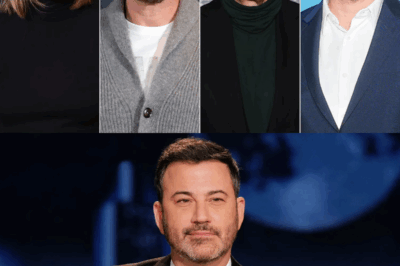
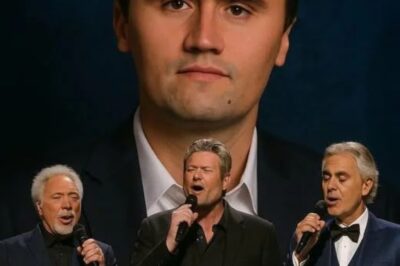

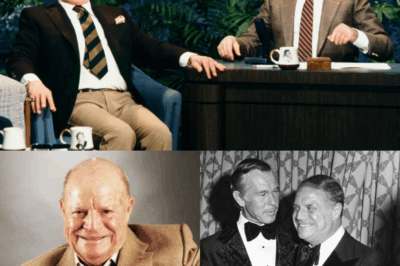
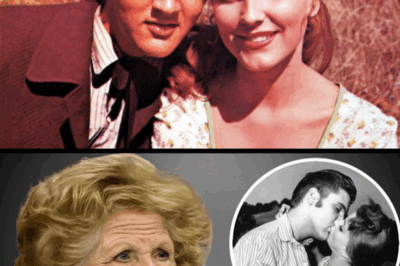
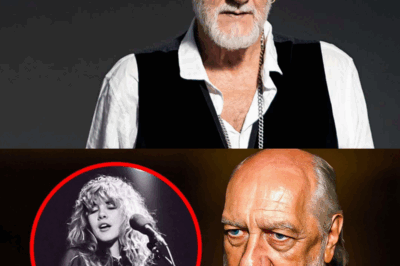
Leave a Reply